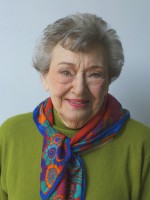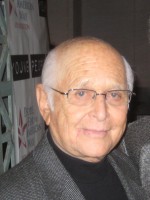Yoo-Hoo, Mrs. Goldberg is a film of genre Documentary directed by Aviva Kempner released in USA on 10 july 2009 with Gertrude Berg
Yoo-Hoo, Mrs. Goldberg (2009)

If you like this film, let us know!
- Infos
- Casting
- Technical infos
- Photos
- Videos
- Film quotes
- Characters
- Music
- Awards
Released in USA 10 july 2009
Directed by Aviva Kempner
Genres Documentary
Themes Films about religion, Documentaire sur une personnalité, Documentary films about religion, Political films, Films about Jews and Judaism
Rating73%










Yoo-Hoo, Mrs. Goldberg is a 2009 documentary film on the broadcast career of Gertrude Berg and her radio and television serials, The Goldbergs. Aviva Kempner directed the film, interviewing family members of Berg, cast members of the Goldbergs and historians of radio and television. She also includes interview statements by non-celebrities, and celebrities, including All Things Considered anchor Susan Stamberg, Supreme Court Justice Ruth Bader Ginsburg, television sitcom producer Norman Lear and Mary Tyler Moore Show actor Ed Asner.
The film follows Berg's early years of marriage, her short period in New Orleans, her move to New York City, to her work in the radio and television renditions of The Goldbergs. The film devotes attention to the role of The Goldbergs in helping to present a congenial image of a striving Jewish family to the broader American public, and the tremendous popularity that the radio and television shows experienced. Stamberg deems Berg, "the Oprah of her day."
Yoo-Hoo, Mrs. Goldberg addresses developments contemporaneous with the years of The Goldbergs, Kristallnacht, the American Nazi German-American Bund and right-wing radio lecturer Father Coughlin. It also deals with Berg's struggle against the McCarthy Era blacklisters and the influence of Red Channels. The film ends with the end of the television program and Berg's post-Goldbergs professional career.
In 2009, the film won the San Francisco Jewish Film Festival Freedom of Expression Award.
Actors
Comments
Leave comment :
Suggestions of similar film to Yoo-Hoo, Mrs. Goldberg
There are 7 films with the same actors, 1 films with the same director, 8971 with the same cinematographic genres, 11986 films with the same themes (including 127 films with the same 5 themes than Yoo-Hoo, Mrs. Goldberg), to have finally 70 suggestions of similar films.If you liked Yoo-Hoo, Mrs. Goldberg, you will probably like those similar films :
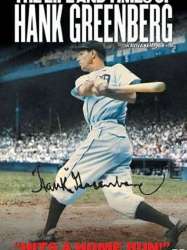
Directed by Aviva Kempner
Origin USA
Genres Documentary
Themes Films about religion, Sports films, Baseball films, Documentary films about sports, Documentary films about religion, Films about Jews and Judaism
Actors Walter Matthau
Rating75%





 , 39minutes
, 39minutesOrigin USA
Genres Documentary
Themes Films about writers, Documentary films about war, Documentary films about historical events, Documentaire sur une personnalité, Political films, Documentary films about World War II
Actors Robert Altman, Norman Corwin, Walter Cronkite, Norman Lear
Rating69%





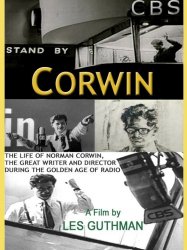
Corwin (1996)
, 1h20Origin USA
Genres Documentary
Themes Films about writers, Documentaire sur une personnalité
Actors Norman Corwin, Norman Lear, Ray Bradbury, Walter Cronkite, Richard A. Dysart, Samantha Eggar
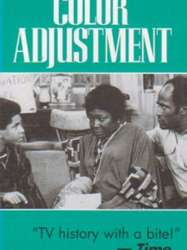
Color Adjustment (1992)
, 1h26Directed by Marlon Riggs
Origin USA
Genres Documentary
Themes Films about racism, Films about television, Documentary films about racism, Documentary films about law, Documentaire sur une personnalité
Actors Norman Lear, Tim Reid, Steven Bochco, Diahann Carroll, Ruby Dee, Hal Kanter
Rating73%






Marion's Triumph (2003)
, 50minutesGenres Documentary
Themes Films about children, Films about racism, Films about religion, Documentary films about racism, Documentary films about law, Documentary films about war, Documentary films about historical events, Documentaire sur une personnalité, Documentary films about religion, Political films, Films about Jews and Judaism, Documentary films about World War II
Actors Debra Messing
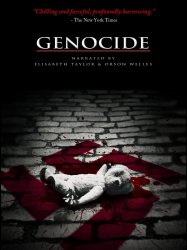
Genocide (1982)
, 1h30Origin USA
Genres Drama, War, Documentary, Historical
Themes Films about racism, Films about religion, Documentary films about racism, Documentary films about law, Documentary films about war, Documentary films about historical events, Documentaire sur une personnalité, Documentary films about religion, Political films, Films about Jews and Judaism, Documentary films about World War II
Actors Elizabeth Taylor, Orson Welles
Rating72%





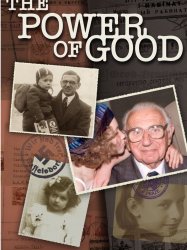 , 1h4
, 1h4Directed by Matej Mináč
Genres Documentary, Historical
Themes Films about racism, Films about religion, Documentary films about racism, Documentary films about law, Documentary films about war, Documentary films about historical events, Documentaire sur une personnalité, Documentary films about religion, Political films, Films about Jews and Judaism, Documentary films about World War II
Actors Karel Reisz
Rating81%





Partez à la rencontre de Nicholas Winton, véritable héros d'avant-guerre. Jamais considéré comme tel, cet homme a pourtant sauvé 669 enfants à la veille de la Seconde Guerre mondiale. Dans la capitale tchécoslovaque, alors qu´il se préparait pour des vacances au ski, le jeune Nicholas Winton va organiser une extraordinaire opération de sauvetage d'enfants juifs menacés par les nazis.

Channels of Rage (2003)
Origin Israel
Genres Documentary
Themes Films set in Africa, Films about music and musicians, Films about religion, Documentary films about law, Documentary films about war, Documentary films about historical events, Documentary films about music and musicians, Documentaire sur une personnalité, Documentary films about politics, Documentary films about religion, Hip hop films, Musical films, Political films, Films about Jews and Judaism
Rating68%





The film focuses on two young rap artists, Subliminal, an Israeli Jew, and Tamer Nafar, a Palestinian citizen of Israel, and focuses on their music, friendship, and their politicization as public figures. The film traces the relationship between Tamer and Subliminal, as the events of the Second Intifada unfold, and lets the viewer draw conclusions from the souring relations between the two as an individual representation of the polarization process which took place during these years of bloody conflict. In this aspect, the film succeeds in delivering the atmosphere of the loss of hopes for peace after the failure of the Camp David summit between Ehud Barak and Yasser Arafat and the renewed intensity of the conflict since. The film was featured in the San Francisco Jewish Film Festival.
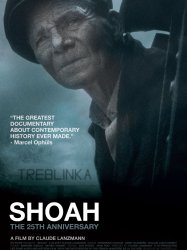
Shoah (1985)
, 9h26Directed by Claude Lanzmann
Origin France
Genres Documentary, Historical
Themes Films about racism, Films about religion, Documentary films about racism, Documentary films about law, Documentary films about war, Documentary films about historical events, Documentaire sur une personnalité, Documentary films about religion, Political films, Films about Jews and Judaism, Documentary films about World War II
Actors Claude Lanzmann
Rating86%





The film is concerned chiefly with four topics: Chełmno, where mobile gas vans were first used by Germans to exterminate Jews; the death camps of Treblinka and Auschwitz-Birkenau; and the Warsaw Ghetto, with testimonies from survivors, witnesses, and perpetrators.

Portrecista (2005)
, 52minutesGenres Documentary
Themes Films about racism, Films about religion, Documentary films about the visual arts, Documentary films about racism, Documentary films about law, Documentary films about war, Documentary films about historical events, Documentaire sur une personnalité, Documentary films about religion, Political films, Films about Jews and Judaism, Documentary films about World War II
Rating78%





Portrecista (The Portraitist) examines the life and work of Wilhelm Brasse, who had been trained as a portrait photographer at his aunt's studio prior to World War II and passionately loved taking photographs. After his capture and imprisonment by the Nazis at Auschwitz concentration camp in 1940, at the age of 23, he was forced to take "identity pictures" of between approximately 40,000 to 50,000 other inmates between 1940 and 1945. With "courage and skill", documenting "cruelty which goes beyond all words ... for future generations", after his liberation at the end of World War II, Brasse "could not continue with his profession" and would never take another photograph.
 Connection
Connection

